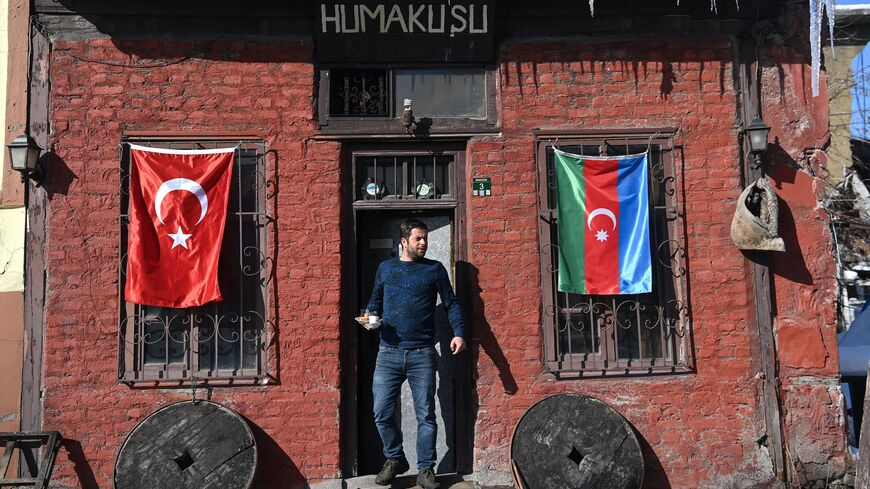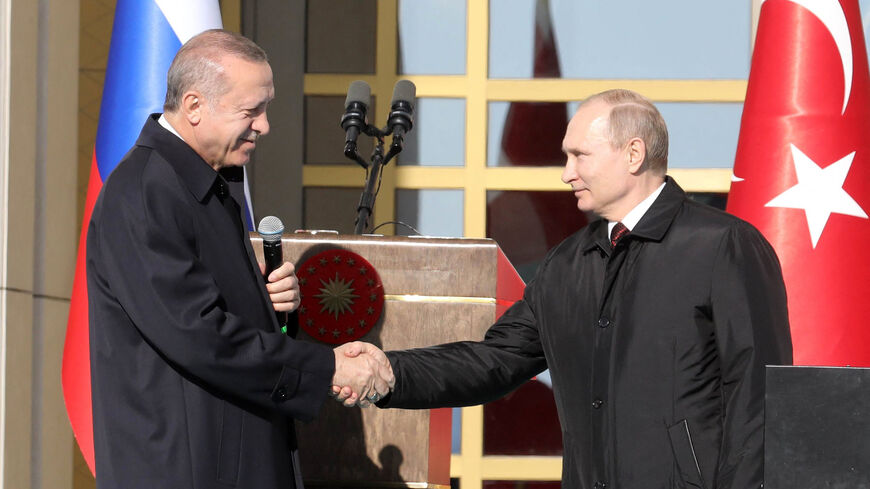51 Boko Haram terrorists surrender in North East

Boko Haram insurgents have continued to surrender in the terror-troubled North-East as the Nigerian military widens its offensive against terror in the region and around Lake Chad.

Boko Haram insurgents have continued to surrender in the terror-troubled North-East as the Nigerian military widens its offensive against terror in the region and around Lake Chad.

Iran is increasingly worried over Azerbaijani and Turkish geopolitical gains in the region as calls for “Greater Azerbaijan” push a hot button in Tehran.
Tensions are rising between Iran and Azerbaijan over Baku’s plans for a land connection to its exclave of Nakhchivan via Armenian territory, threatening to undermine Turkish-Iranian ties as well.

Some experts are warning that Turkey’s first nuclear power plant, which is being built by Russia’s Rosatom, might become a tool to advance Russian interests in the region.
A potential security threat has emerged for NATO and Europe at large: the construction of Turkey’s first nuclear plant. Experts say the project by Russia and Turkey could allow Moscow to establish a commercial port in Turkey’s Mediterranean province of Mersin.

The US military says it opposes Ankara’s plans to send ground troops against Syria’s Kurds, but it has stood down in the face of similar attacks in the past.
A suspected Turkish drone strike hit a Kurdish-led militia base in northeast Syria on Tuesday, killing two members of a local US-backed Syrian counterterrorism unit and wounding three others, spokespeople for the group told Al-Monitor.
Şeful Statului Major al Greciei, generalul Konstantinos Floros, a întrecut măsura. Referindu-se la Turcia în discursul rostit cu ocazia Zilei Forţelor Armate, Floros a spus: “Vor decide când vor dori să vină”.
Ieri, forţele armate turce au lansat o amplă şi cuprinzătoare operaţiune în nordul Irakului şi în nordul Siriei. O operaţiune aeriană sub numele de Pençe-Kılıç (Gheară-Sabie-n.trad.) Ordinul de luptă l-a dat comandantul suprem Recep Tayyip Erdoğan. Nu numai presa turcă, ci şi presa din întreaga lume a acordat spaţii largi acestei operaţiuni ample, comentându-se că reprezintă o “ripostă la atentatul PKK care a avut loc în Taksim”.

Who is Sheikh Osama al-Rifai, the new Grand Mufti of Syria appointed by the Opposition after the position was abolished by Assad.
The opposition Syrian Islamic Council announced the election of Sheikh Osama al-Rifai as the Grand Mufti of Syria Syrian and international circles welcomed this move as preserving the position of the fatwa that the Assad regime tried to abolish in the interest of its agendas.

France will stop sending public development aid to Mali because of the West African country’s alleged ties to Russian paramilitaries, according to the French foreign ministry.
“Given the attitude of Mali’s junta leader, allied with the Russian mercenaries of Wagner, we have suspended our public development aid to Mali,” a ministry source said on Thursday.

West African coastal states are holding talks on boosting military cooperation against jihadist violence spilling over from the Sahel. This follows recent announcements that several international peacekeeping contingents are being withdrawn from Mali.
Benin, Ghana, Côte d’Ivoire and Togo are confronting increased risks from Islamic State jihadists and Al Qaeda militants waging war over their northern borders in the Sahel.
Eritrea continues to send military reinforcements to the Tigray region despite the recent peace agreement, according to a statement issued by the regional government on Saturday.
Earlier this month, the Ethiopian government and the Tigray People’s Liberation Front (TPLF) agreed to a ceasefire as a first step to ending the two-year conflict.